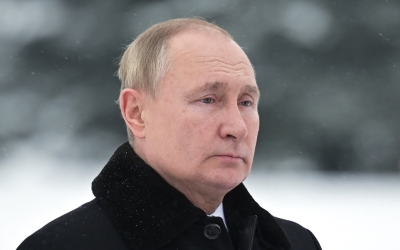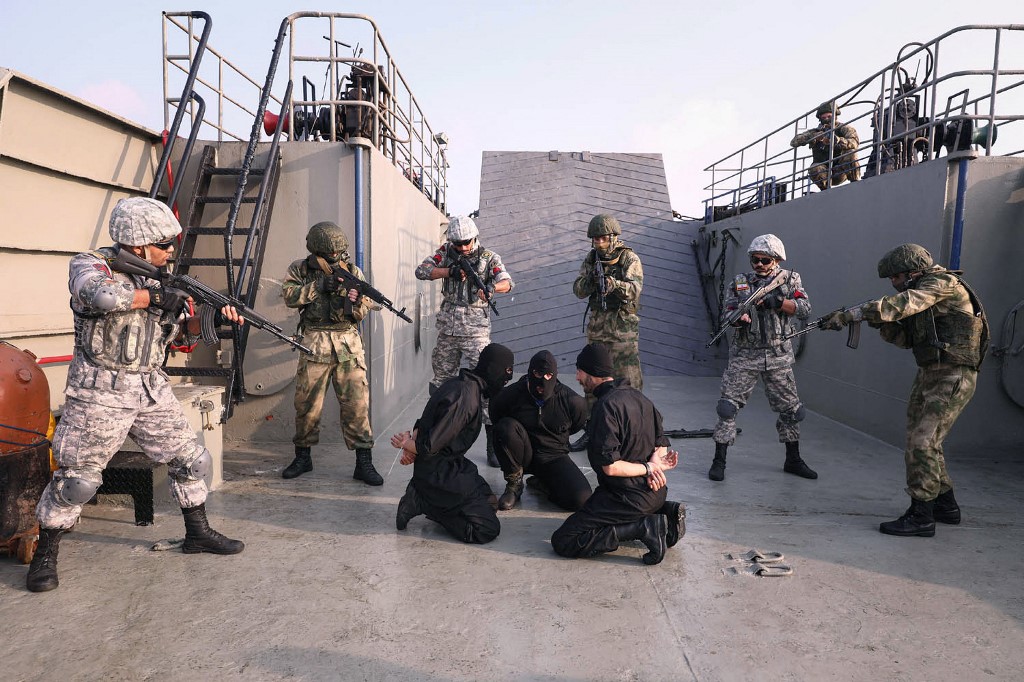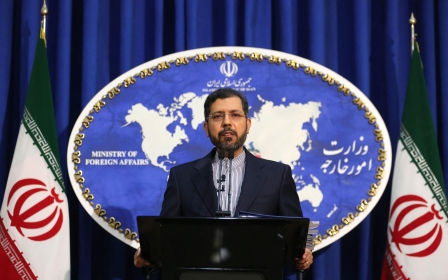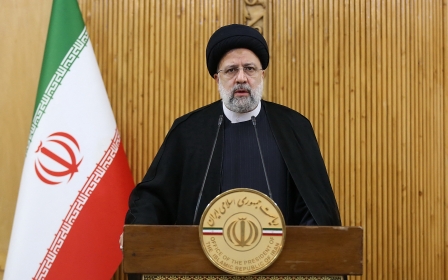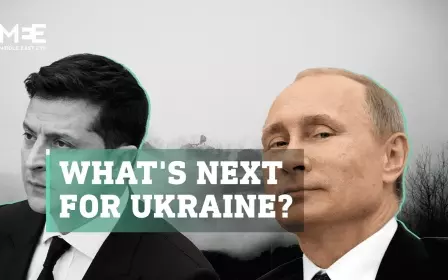Russia-Ukraine war: Why Iran is closely monitoring Moscow-West tensions over invasion
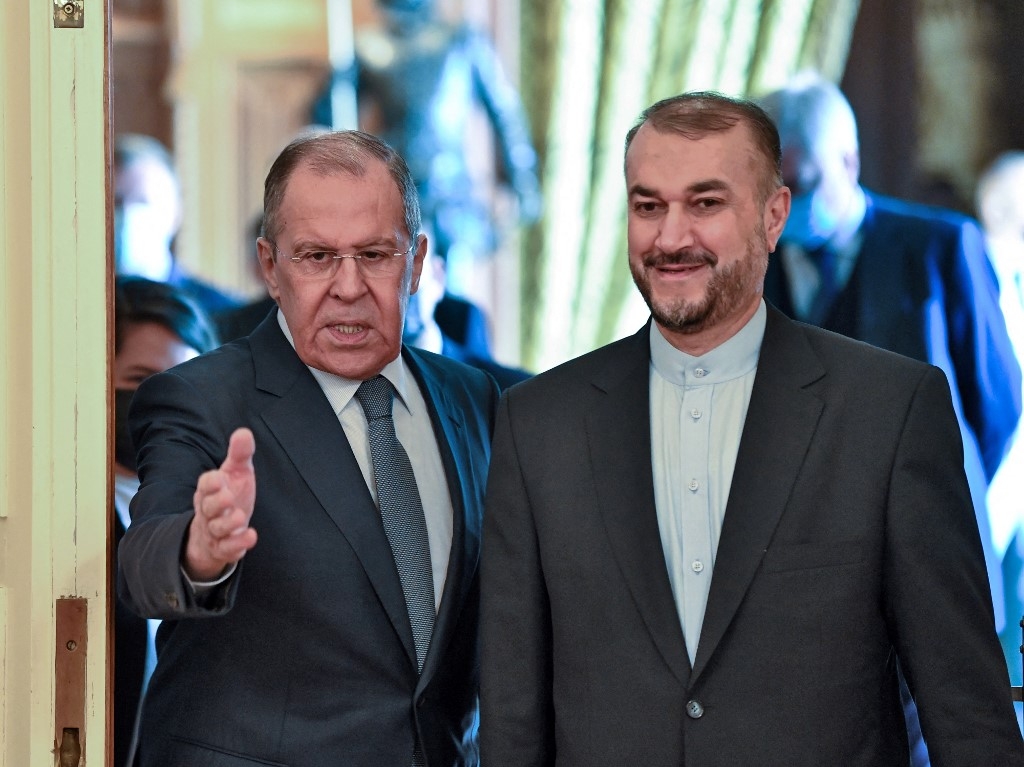
Russia's military attack on Ukraine has quickly escalated into an international crisis. The war will inevitably have multiple global consequences for Russia, including its role in the Middle East.
Although it is not yet clear what Russia's ultimate political, economic and geopolitical goals are in Ukraine, the invasion of its neighbour per se is a serious international incident with major implications.
As one of Russia's most important partners in the Middle East, Iran will be carefully following Russia's actions in Ukraine and believes that the crisis "is rooted in Nato's provocative actions". This is because Tehran will be interpreting the Russia-Ukraine war through the prism of the Islamic Republic's strategic worldview and perceived western unilateralism.
Iran saw a newly unpredictable Vladimir Putin, who quickly deviated from a peaceful settlement and chose instead without hesitation a violent path in order to secure Russia's vital "security interests" against the West.
The West's moves to sanction the Russian economy, suspend Nord Stream 2 and back Ukraine's military against Russia didn't deter Putin. Accordingly, it solidified the thinking in Tehran that the imposition of sanctions should not be overestimated in national security cost-benefit calculus.
Moreover, Iran has judged that Nato is nothing but a paper tiger against Russia, in that when it came to offering operational support for Ukraine, it stepped back.
Fragmented international community
On a practical level, Iran is reading the situation in another way too. The increasing tensions between Russia and the West provide Tehran with more room to play between different poles, specifically in the talks in Vienna on the restoration of the 2015 nuclear deal, known as the Joint Comprehensive Plan of Action (JCPOA).
Tehran recognises Russian 'legitimate' security interests and blames the West for manipulating the regional security environment
The thinking goes that a fragmented international community with more urgent and pressing issues won't be strong enough to exert the previous pressure on Iran to make a deal in the specified time frame without observing Iran's demands.
Although Iran pursues lifting sanctions as soon as possible and has a limited capacity to play between great powers, the JCPOA and Iran's nuclear programme is a global bargaining chip for Russia in challenging US capacity to cope with the situation in Ukraine.
Thus, Washington must conclude the Vienna process to return Iran's nuclear programme restrictions and probably isolate Russia from international diplomacy. The Vienna talks promise to lift only nuclear sanctions against Iran, not all sanctions. Significant sanctions under other pretexts, such as developing missile programmes, terrorism and human rights abuses, would remain.
Iran hasn't always explicitly endorsed Russia's adventurism in the so-called "Near Abroad" (independent states that were once part of the Soviet Union) and took a relatively neutral position in both the 2008 Russo-Georgian war and the 2014 Ukraine crisis. However, Tehran recognises Russian "legitimate" security interests and blames the West for manipulating the regional security environment.
Dilemma for Iranian foreign policy
Russia's large-scale attack on Ukraine without any legitimate reasons gravely contradicted the country's official narrative on multilateral dispute settlement with reliance on the United Nations Security Council.
Furthermore, it also created a dilemma for Iranian foreign policy, which decries forceful foreign interventions by great powers and asks for respect to the territorial integrity of countries and accepted international borders.
In an unexpected telephone conversation with his Iranian counterpart, Ebrahim Raisi, Putin tried to "explain" the legal basis of Russia's "special military operation" in Ukraine, with Raisi expressing his "understanding" with respect to Russia's security concerns caused by the "destabilising" actions of Nato.
Vacillating between expressing general sympathy for Russian concerns without explicit supportive rhetoric, and taking an opportunistic approach in the middle of increasing Russian-western rifts could be more compatible with Iranian foreign policy - motto "Neither East nor West".
For example, with the growing insecurity of gas imports from Russia to Europe and the limited capacity of other alternative sources such as Qatar, Iran's huge untouched gas reserves are the most conceivable alternative for European countries to consider, if US sanctions were to be lifted.
Iranian gas reserves
In the last Gas Exporting Countries Forum summit in Doha, Raisi announced: "Iran, with one of the world's biggest gas reserves, possesses a very high capacity for production, transport and export of natural gas and more participation in securing global supply security."
At the same time as the western world endeavours to boycott Russia in various global areas, Moscow will presumably try to avoid diplomatic, political and economic isolation and strengthen ties with the non-western world, including China and Iran.
From Tehran's point of view, the Ukraine crisis is a new opportunity to consolidate solidarity in the 'Triple Axis' between Russia, China and Iran
Before the invasion of Ukraine, Putin unveiled new oil and gas deals with China and published a lengthy joint statement on the two countries' very close vision on bilateral relations, world order and countering US unilateralism.
After the invasion, however, Putin asserted: "Russia remains a part of the global economy and is not going to damage the system of the global economy, and our partners shouldn't set a goal to push us out of the system."
Therefore, from Tehran's point of view, the Ukraine crisis is a new opportunity to consolidate solidarity in the "Triple Axis" between Russia, China and Iran, and bring new windfalls and opportunities for Iran's foreign, economic and security policies.
Exploiting these new chances without alienating the West or East depends on prudent goals, pragmatic decisions and diplomatic nuance.
The views expressed in this article belong to the author and do not necessarily reflect the editorial policy of Middle East Eye.
Middle East Eye propose une couverture et une analyse indépendantes et incomparables du Moyen-Orient, de l’Afrique du Nord et d’autres régions du monde. Pour en savoir plus sur la reprise de ce contenu et les frais qui s’appliquent, veuillez remplir ce formulaire [en anglais]. Pour en savoir plus sur MEE, cliquez ici [en anglais].



